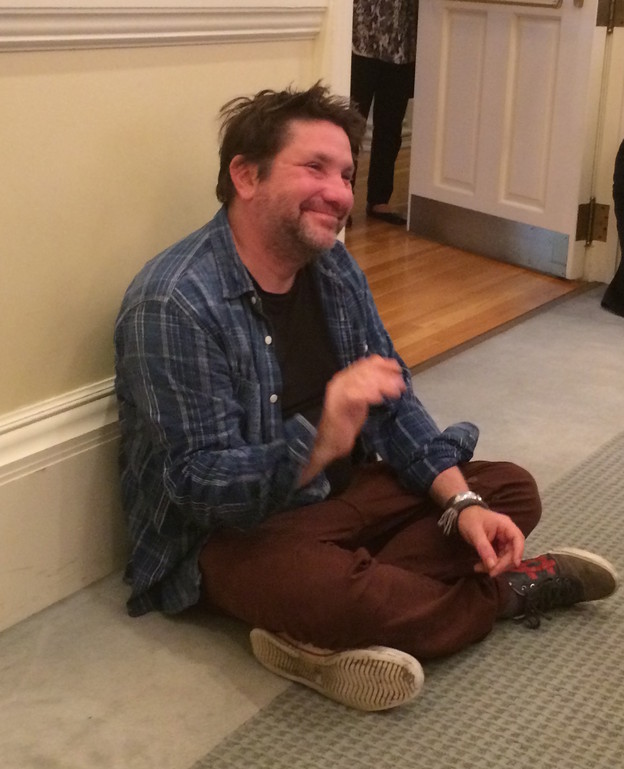
Jason Zuzga wins prize for best dissertation

Scholar and poet Jason Zuzga has won the Diane Hunter Prize for Best Dissertation, 2017, from the English Department of the University of Pennsylvania. Prize judges Rita Barnard and Rita Copeland wrote this commendation of Zuzga's "Uncanny World: Envisioning Nature in Documentary":
The committee was extremely impressed by the range and quality of the work submitted for the award. We extend our sincerest congratulations and admiration to all of the nominees, whose collective work is testimony to the intellectual energy and rigor of Penn’s English department. We agreed, however, to name Jason Zuzga’s “Uncanny World: Envisioning Nature in Documentary,” as the winner of the prize for the best dissertation.
In “Uncanny World,” Jason Zuzga gives a deep history and wide-ranging examination of the genre of the “Nature Documentary.” He offers fresh and revealing engagements with the older standards of the genre, films by Jean Painlevé, Jacques Cousteau, Mutual of Omaha’s Wild Kingdom, and Carl Sagan’s Cosmos, as well as more recent iconic works from “The Nature Channel,” including March of the Penguins and the Blue Planet series. But Jason opens the generic limitations of the “nature documentary” to include a remarkably larger corpus in a variety of modes and media. One aspect, treated in Chapter Three (“A History of Nature Documentary: Taxonomy, Predecessors, Tendencies and Survey of Critique”) is the much longer history of representational forms that aim to document nature, from Aristotle’s On the Generation of Animals and Lucretius’s On the Nature of Things to Erasmus Darwin’s The Loves of Plants, Charles Darwin’s On the Origin and Species and The Expression of the Emotions in Man and Animals. This history extends further to other crucial nineteenth century figures like Alexander von Humboldt and Ralph Waldo Emerson. Jason’s study also encompasses Werner Herzog’s Grizzly Man, Isabella Rossellini’s Green Porn, the Australian aboriginal film Two Laws, and animated simulations used in molecular biology.
His capacious presentation of the genre of “nature documentary” develops into profound and considered reflection on knowledge, experience, and technology. Behind his arguments lies a vast repository of theoretical reading, which he controls with maturity and activates in precise and fresh language. His insights into familiar figures like Freud and Zizek are surprising and informative, but he also brings critical thought about the aesthetics of representation into dialogue with neuroscience and environmental studies. He raises the profound questions about how our organs of perception and ways of seeing shape our world and how we may begin to engage with the strange worlds that other perceptual modes could give rise to. Ultimately, Jason arrives at the following paradox: that documenting nature is impossible given the constraints of our perceptual toolkit, but that the impulse to document nature is a necessary and ethical one: it motivates us to develop new ways of seeing.
In his acknowledgements, Jason thanks his cat for asking him the most probing questions. Hats off, therefore, to his cat, and also to his dissertation director, Charles Bernstein.